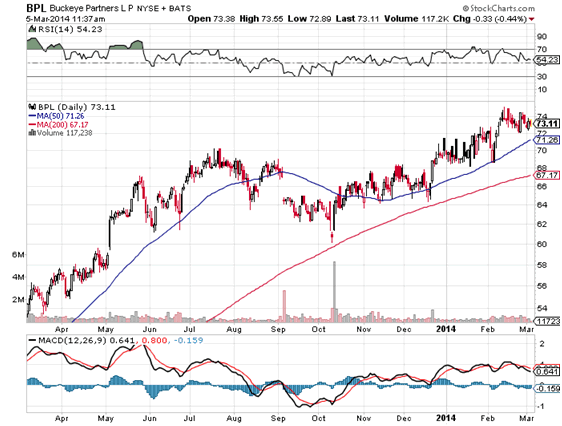How the Ukraine/Russia Situation Is Misleading Stock Investors
Stock-Markets / Stock Markets 2014 Mar 08, 2014 - 02:10 PM GMTBy: DailyGainsLetter
 Sasha Cekerevac writes: Sometimes, what seems obvious on the surface isn’t necessarily the best way of looking at a situation. The recent crisis between Ukraine and Russia is a perfect example.
Sasha Cekerevac writes: Sometimes, what seems obvious on the surface isn’t necessarily the best way of looking at a situation. The recent crisis between Ukraine and Russia is a perfect example.
A very basic fundamental analysis of the situation would lead one to conclude that if hostilities were to break out, one of the results would be a disruption to the oil and natural gas supplied to Europe. This makes sense, since many pipelines and oil/gas fields are located in Ukraine and Russia.
What most people don’t realize is that stocks traded here in America could be negatively impacted and could perhaps have their earnings outlook downgraded due to such an event, even though the price of oil and gas might rise.
One point to make is that natural gas is more of a local commodity, so fundamental analysis cannot be extrapolated on a global basis, since transportation is far more difficult than oil.
The earnings outlook for some non-Russian companies could have issues, since many firms have agreements or outright equity stakes in Russian companies.
A perfect example is BP p.l.c. (NYSE/BP), which has a 19.75% stake in Rosneft, a giant Russian energy company. Approximately one-third of BP’s production comes from this stake in Rosneft, which could impact the earnings outlook for the company if tensions rise. Of course, BP does have other assets, including a pipeline that does not go through Ukraine, which could see an increase in demand partially offsetting any decrease in the earnings outlook from their stake in Rosneft.
This is a situation where the fundamental analysis might seem simple, but the reality is that understanding the interlinked nature of global business these days makes the calculation far more difficult.
While many people might look to an increase in the earnings outlook for oil companies based on a spike in the price of commodities, one does need to be careful in determining which firms offer upside potential without downside risks from ties to that region.
Clearly, the recent events have added a boost to the price of oil; it doesn’t take much fundamental analysis to realize that’s the case. I think a geopolitical situation such as this won’t end quickly, and even if it does, the easy monetary policies globally will continue to provide a bid for the price of oil going forward, improving the earnings outlooks for companies in this sector.

Chart courtesy of www.StockCharts.com
One stock that I have liked for a long time is Buckeye Partners, L.P. (NYSE/BPL). Buckeye owns more than 6,000 miles of oil pipeline systems in America with 55 million barrels of liquid petroleum storage capacity. Internationally, the company also has six liquid petroleum terminals in various ports, such as St. Lucia, Puerto Rico, and the Bahamas. (Source: Buckeye Partners, L.P. web site, last accessed March 5, 2014.)
The earnings outlook still remains very strong for this company. A quick fundamental analysis of the fourth-quarter 2013 financial results shows that the firm reported $87.5 million in net income from continuing operations, up significantly from the $32.5 million during the same quarter in 2012.
There clearly isn’t enough room in this article to go into an in-depth fundamental analysis report on Buckeye, but my point is that an investor needs to take into account many factors before determining the earnings outlook of the company.
Don’t make the mistake of rushing into a position due to a recent geopolitical event. As an investor, your goal is to own a solid business for the long term. Focus on the fundamental analysis of the business, and the market will reward you over time.
This article What I Learned at the World’s Biggest Mining & Exploration Convention was originally published at Daily Gains Letter
© 2014 Copyright Daily Gains Letter - All Rights Reserved
Disclaimer: The above is a matter of opinion provided for general information purposes only and is not intended as investment advice. Information and analysis above are derived from sources and utilising methods believed to be reliable, but we cannot accept responsibility for any losses you may incur as a result of this analysis. Individuals should consult with their personal financial advisors.
© 2005-2022 http://www.MarketOracle.co.uk - The Market Oracle is a FREE Daily Financial Markets Analysis & Forecasting online publication.



